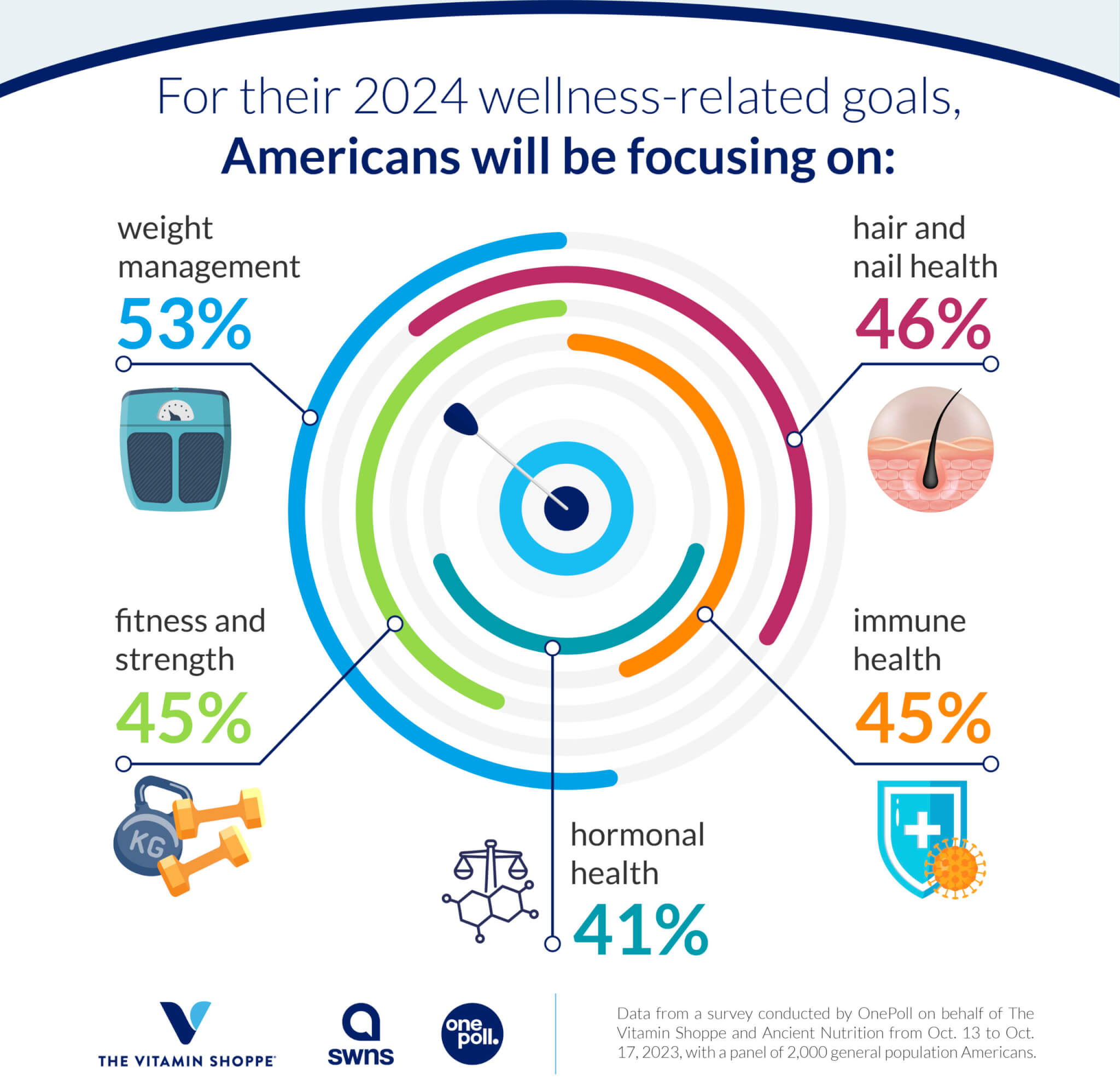NEW YORK — Want to make your annual resolutions stick? Two in five Americans believe the answer is to “start small.”
As Americans look forward to the holiday season and New Year’s 2024, a new poll of 2,000 adults reveals that respondents would rather kick off their goals gradually (40%) than jump in headfirst (18%). Even so, results show that Americans prefer to make long-term goals (42%) rather than short-term ones (27%). Those who prefer long-term goals do so because they believe they can take their time reaching them (62%), the results are usually bigger and better (57%), and because they think people won’t know if they fall off track (56%).
Short-term goals, on the other hand, are popular because respondents have had more success in reaching them (61%), can see results faster (59%), and they’re usually simpler (55%).
Conducted by OnePoll on behalf of The Vitamin Shoppe and Ancient Nutrition, the survey reveals that the easiest goals to achieve are practicing better hygiene (62%), drinking more water (55%), taking daily vitamins and supplements (49%), and working on flexibility — like simply being able to touch your toes (41%).
Though 34 percent of respondents believe that January is the best month to start a new goal or habit, it is noteworthy that 14 percent select February, and 12 percent claim that any month will do.
So, how long do they expect to keep at their goals? Results show that respondents believe New Year’s goals should be attained by summer, or take an average of about five months.

Three-quarters of respondents set at least one resolution each new year, and another 12 percent set resolutions, but not necessarily every year.
However, that doesn’t mean everyone looks at the start of the new year in the same way — respondents view resolutions as a motivator (63%), a tradition (50%), and a way to improve their health (44%).
Of those respondents, an astounding 83 percent claim to have had success with their resolutions over the years. Most of these successful resolutions include goals pertaining to relationships and friendships (51%), physical health (49%), socializing (44%), and mental health (39%).
When it comes to health and wellness-related resolutions, in 2024, Americans plan to focus on areas such as weight management (53%), hair and nail health (46%), fitness and strength (45%), immune health (45%), and even hormonal health (41%).
To achieve these goals, respondents say they will be exercising more regularly (55%), taking vitamins and supplements (55%), and enlisting the help of family and friends (52%).
Americans are also slightly more likely to target their overall wellness and foundational health versus very specific health goals this year (31% vs 28%). If they were to fall off track, most respondents would seek out help by either looking for support from family and friends (58%) or talking to their doctor (51%).
More than half (54%) are likely to just start their goals over, while only three in 10 would give up entirely.
“The New Year can be an ideal time to set resolutions and goals, because it’s a chance for a fresh start and a clean slate,” says Dr. Axe. “Lots of people are setting goals at this time so you can feel supported and part of something bigger than just yourself. However, it’s important to make your resolutions specific to your own individual health and lifestyle, as everyone’s wellness journey is unique to themself.”
Survey methodology:
This random double-opt-in survey of 2,000 general population Americans was commissioned by The Vitamin Shoppe and Ancient Nutrition between Oct. 13 and Oct. 17, 2023. It was conducted by market research company OnePoll, whose team members are members of the Market Research Society and have corporate membership to the American Association for Public Opinion Research (AAPOR) and the European Society for Opinion and Marketing Research (ESOMAR).

